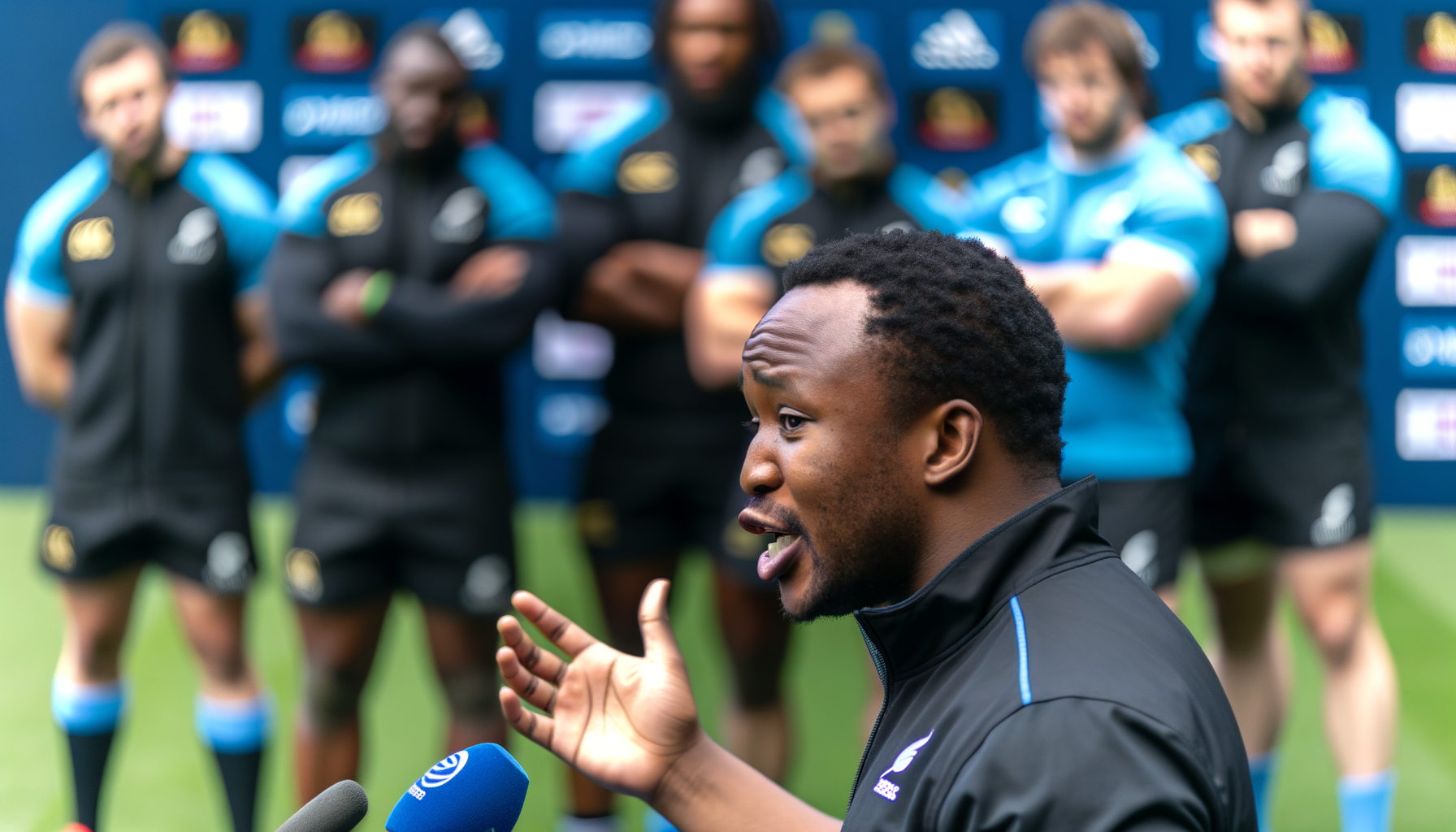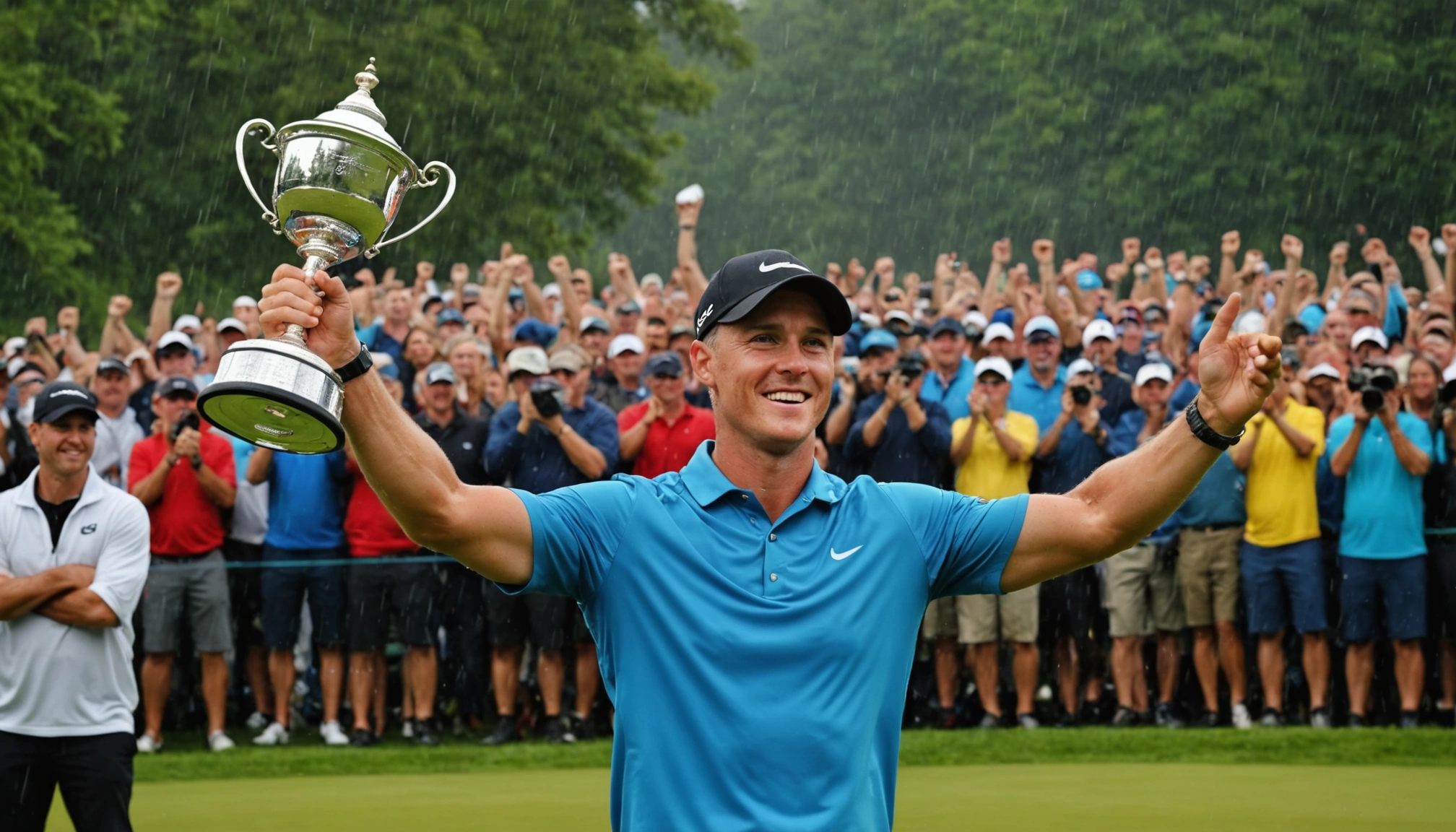Luther Burrell Reflects On RFU Racism Findings And Future Change
Luther Burrell shares his sense of closure after RFU confirms racism claims. Discover the impact on rugby union and ongoing efforts to tackle discrimination.

By Editorial
Luther Burrell's journey to closure after RFU racism investigation
Former England rugby centre Luther Burrell has spoken candidly about his relief and pride following a Rugby Football Union (RFU) investigation that found his allegations of racism within rugby union to be credible. Burrell’s revelations, first made public in 2022, highlighted a troubling culture of racial abuse and discrimination in elite rugby, prompting the RFU to expedite new inclusion strategies for the sport. This article explores the investigation’s findings, Burrell’s experiences, and the wider implications for rugby union in the UK.
The RFU investigation and its key findings
After Burrell’s claims emerged, the RFU took over an inquiry originally launched by Newcastle Falcons, Burrell’s last club. The report, published in early 2023, concluded that on the balance of probabilities, racism had indeed occurred, confirming Burrell’s evidence as reliable. While the investigation did not identify all individuals responsible, it did confirm a racist WhatsApp message linked to the club and two further incidents of verbal abuse against Burrell.
The report also highlighted a worrying lack of diversity and equality training at Newcastle Falcons, with many senior players and coaches having received no education on these crucial topics or on safe social media use. This gap in training contributed to a culture where inappropriate and sometimes brutal "banter" was tolerated.
Luther Burrell’s personal reflections on racism in rugby
Burrell, 35, who is of Jamaican descent, described how racist language, including deeply offensive terms, had become normalised in locker rooms and social settings. He emphasised the damaging impact on his dignity and wellbeing, both as a player and as a father. Despite the pain, Burrell has chosen not to name those responsible, focusing instead on fostering change.
"This has not been a witch hunt," Burrell said in his first interview since the investigation's conclusion. "It's about me finally having my voice heard and about generational change within the sport." He hopes his experience will protect future players from similar abuse, both in professional rugby and at the grassroots level.
The culture of banter and its consequences
The investigation exposed a complex culture of "banter" that often masked discriminatory behaviour. While many at Newcastle Falcons described the club’s atmosphere as positive, there was consensus that some of the banter was harsh or brutal, crossing the line into racism and classism.
Such entrenched attitudes are not unique to Newcastle. The RFU’s broader research revealed that players across all elite rugby tiers – including men’s, women’s, clubs, national teams, and academies – have experienced some form of racism. This included repeated inappropriate comments and jokes from teammates, opposition players, and coaches.
RFU’s accelerated action plan to promote inclusion
In response to Burrell’s case and wider findings, the RFU has fast-tracked a new strategy to eliminate discrimination and embed inclusion at all levels. The plan addresses the low reporting rates of racist incidents and the disproportionate burden on under-represented groups to call out misconduct.
Bill Sweeney, RFU Chief Executive, praised Burrell’s bravery and stressed the need for collective action across English rugby. The RFU's commitment includes improved education programmes, whistleblowing processes, and ongoing cultural change initiatives.
Newcastle Falcons’ response and future commitments
Newcastle Falcons expressed regret that discriminatory behaviour occurred within their club and reaffirmed a zero-tolerance stance. The club acknowledged that many incidents likely took place off the pitch and outside the club’s immediate knowledge, complicating direct accountability.
The Falcons have committed to enhancing equality, diversity, and inclusion training and strengthening policies to prevent future incidents. This aligns with recommendations from the RFU report to create safer, more respectful environments for all players and staff.
Why Luther Burrell’s story matters beyond rugby
Burrell’s courageous decision to speak out shines a light on systemic issues that extend beyond sport. Racism and classism affect many sectors of British society, and sport often reflects these broader challenges.
His experience raises important questions: How can sporting institutions better support victims of discrimination? What role do teammates and coaches play in fostering inclusive cultures? And how can future generations be protected from the harmful legacy of "banter" used to excuse racist behaviour?
For those interested in the intersection of sport and social justice, Burrell’s story complements discussions around data protection and fairness in sports governance, such as the recent how the BBC protects your data in sport polls and quizzes, highlighting the need for ethical standards across all facets of sports.
Looking ahead: the path to a more inclusive rugby union
While progress is underway, Burrell acknowledges that eradicating racism from rugby is a long journey. His hope is that ongoing education, accountability, and cultural shifts will transform rugby union into a sport where every player feels valued and respected.
As rugby continues to evolve, stories like Burrell’s serve as catalysts for change—reminding us that sport can and should be a force for equality and inclusion.
For more insights on rugby and other sports developments, explore articles like Elliot Andersons rise a strong case for England’s World Cup squad or stay up to date with Ryder Cup 2024 latest updates and key insights.
Support and resources
If you or someone you know has been affected by issues raised in this article, support is available. Organisations such as BBC Action Line offer confidential advice and assistance for those facing discrimination or abuse.
Related topics
Editorial
Sports expert at SportsScoop
Specialist in sports analysis and journalism
Related articles
Want to read more?
Explore our comprehensive collection of sports articles and analysis, or contact us for more information.



